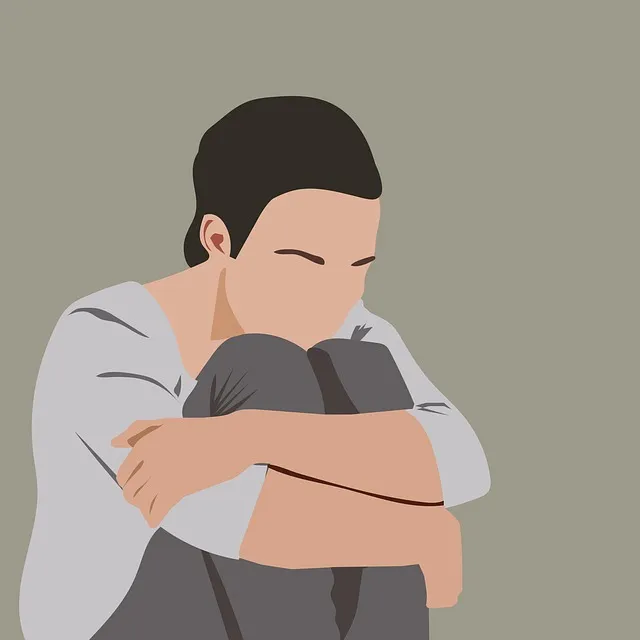Kaiser Permanente mental health Longmont specializes in supporting individuals through loss, grief, and bereavement with personalized counseling, cognitive-behavioral therapy (CBT), and grief counseling. Their evidence-based practices foster healing, resilience, and long-term emotional well-being, while also addressing healthcare provider burnout and risk management. Through community outreach programs, they empower residents to navigate emotional challenges and promote a supportive mental health environment in Longmont.
Grief is a complex process that follows significant loss, and seeking support can be transformative. This article explores the crucial role of counseling in navigating loss, grief, and bereavement, offering a comprehensive guide for individuals and families in Longmont. We delve into the understanding of these stages, highlighting how Kaiser Permanente Mental Health provides specialized care tailored to the unique needs of those dealing with loss. By examining various counseling techniques and available resources within Kaiser Permanente services, readers gain insights into effective coping strategies.
- Understanding Loss, Grief, and Bereavement: A Comprehensive Overview
- The Role of Kaiser Permanente Mental Health in Supporting Bereaved Individuals
- Counseling Techniques for Coping with Loss and Grief
- Accessing Support: Longmont Residents and Kaiser Permanente Services
Understanding Loss, Grief, and Bereavement: A Comprehensive Overview

Loss, grief, and bereavement are complex emotional processes that significantly impact individuals following the death of a loved one. Understanding these concepts is crucial in providing effective counseling services, especially through organizations like Kaiser Permanente mental health Longmont. Loss refers to the absence or reduction of something valued, while grief is the intense emotional response to that loss. Bereavement, on the other hand, encompasses the period and process of adjusting to life after a significant death.
Recognizing the distinct yet interconnected aspects of loss, grief, and bereavement is vital for mental health professionals. This knowledge enables them to develop tailored interventions, such as counseling sessions, aimed at helping individuals navigate their emotions and adapt to their new reality. Additionally, understanding these dynamics can contribute to burnout prevention strategies for healthcare providers, particularly those in high-risk areas like Kaiser Permanente, while also enhancing risk management planning for mental health professionals.
The Role of Kaiser Permanente Mental Health in Supporting Bereaved Individuals

Kaiser Permanente Mental Health in Longmont plays a pivotal role in supporting individuals navigating loss, grief, and bereavement. Their dedicated team offers specialized counseling services designed to help people process complex emotions associated with significant life changes. By fostering open conversations and providing a safe space, these professionals facilitate healing journeys. The approach at Kaiser Permanente goes beyond traditional therapy; it includes evidence-based practices tailored to individual needs.
Through various therapeutic methods, bereaved individuals can develop positive thinking patterns, enhance social skills, and rebuild confidence. This holistic support system recognizes the profound impact of loss on mental well-being and strives to empower clients with coping strategies for long-term resilience. With a focus on compassionate care, Kaiser Permanente Mental Health in Longmont ensures that those grieving receive the necessary tools to navigate their journey towards healing and renewed purpose.
Counseling Techniques for Coping with Loss and Grief

When facing loss, grief, and bereavement, seeking professional counseling can be a powerful tool for healing. Kaiser Permanente mental health professionals in Longmont offer specialized support tailored to individuals and families navigating these challenging emotions. One of the primary techniques employed is cognitive-behavioral therapy (CBT), which helps clients identify and challenge negative thought patterns associated with loss. By reframing these thoughts, CBT empowers individuals to manage symptoms of depression, anxiety relief, and overwhelming sadness.
Additionally, counselors facilitate grief counseling that recognizes the unique journey each person undertakes. This process involves exploring feelings, memories, and experiences related to the loss, fostering a sense of understanding and acceptance. Community outreach programs, often implemented by mental health education programs designed with care, play a crucial role in connecting individuals with support networks. These initiatives enhance coping strategies and promote resilience as people find solace in shared experiences and meaningful connections.
Accessing Support: Longmont Residents and Kaiser Permanente Services

Longmont residents facing loss, grief, or bereavement can access vital support through Kaiser Permanente’s mental health services. With a focus on emotional well-being promotion techniques, their professional counseling offers guidance tailored to individual needs. The organization prioritizes crisis intervention, ensuring that those in distress receive timely assistance.
Kaiser Permanente Longmont integrates public awareness campaigns and development initiatives into its approach, fostering a supportive environment. By offering accessible resources, they empower the community to navigate these challenging times, demonstrating a commitment to enhancing overall mental health within the region.
Loss, grief, and bereavement are profound experiences that can deeply impact an individual’s well-being. In Longmont, residents now have access to specialized support through Kaiser Permanente mental health services, which offer a safe space for individuals to navigate these complex emotions. By employing compassionate counseling techniques, professionals help bereaved folks cope with loss and find ways to heal. With this comprehensive approach, Kaiser Permanente is revolutionizing grief support in the community, ensuring that Longmont residents have the tools they need to overcome challenging times.






